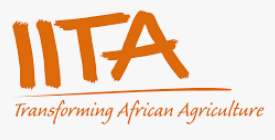Given the increasing competition over water usage, how can
it be ensured that agriculture has access to water, and hence can provide the
global population with food? What part can agriculture, as the largest user of
water, play worldwide in the sustainable stewardship of water as a valuable
resource?
With existing fresh water resources becoming limited and
over-exploited, climate change and water scarcity are ranking high among the
biggest global challenges. Therefore, farmers have to look for alternative ways
of covering their needs – like using wastewater.
Wastewater is a valuable, and still in many countries
untapped resource, which can help the agriculture, agroforestry and forestry
sectors achieve food security and move towards climate change adaptation.
However, wastewater used in agricultural fields often does not meet the
required water quality criteria, let it be from the perspective of the farmers’
health and/or agricultural practices (e.g. high turbidity causing the clogging
of irrigation pipes).
In the frame of the panel experts from different regions and
organizations will discuss the current status of wastewater application in
agriculture, its importance for achieving food security, existing challenges,
relevance with SDG targets and ultimately the future steps forward.
Improved and affordable mechanisms and state of the art
technologies for expanding collection, treatment and safe application of
wastewater in agriculture and agroforestry sector might be applied for water
scarcity adaptation.
These would not only:
(1) contribute to the country’s food security significantly,
and
(2) help cope with climate change sustainably, but also
(3) protect farmers’ health by assuring that treated
wastewater being applied in the field is also safe. The latter would also
contribute
(4) to the farmer’s income, as well as
(5) reduce the amount of pollution produced by agriculture
through replacing a significant amount of fertilizer with nutrients recovered
from the wastewater (e.g. nitrate).
Finally new systems could (6) reduce the total water usage,
by implementing a stable water-wastewater-circle that sustains several
protagonists with hardly any external influences. However, these aims cannot be
achieved without proper water pricing policies and sensitization of the public.
... Linking agrobiz, sustainable environs, people & technology
















